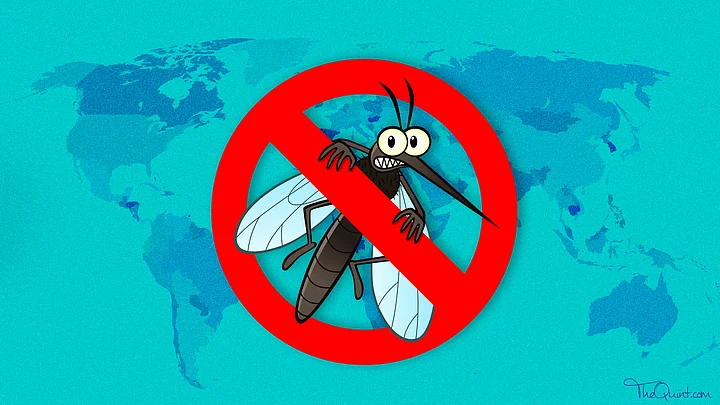World Malaria Day is celebrated globally every year on 25 April with the vision to prevent, control and eradicate malaria globally. This day also encourages the long continuing efforts to achieve malaria free Earth.
World Malaria Day 2019: Theme and Significance
The theme of this year’s World Malaria Day is "Zero malaria starts with me." According to WHO this theme underlines the collaborative energy, commitment and enthusiasm of the global malaria community in procuring the common mission of eliminating malaria. This drive is important to re-energize the fight to completely eradicate the deadly disease that kills one child every two minutes and still threatens almost half of the world population.
To fight with malaria, we first need to understand the disease.
What Causes Malaria and How is it Transmitted?
According to WHO, malaria occurs when a mosquito infected with the parasite Plasmodium bites someone. Four types of malaria parasites are there that can infect the humans: Plasmodium vivax, P. ovale, P. malariae, and P. falciparum.
P. falciparum causes the most severe form of the disease and those who contract this have generally a higher risk of death. There is a risk of an infected mother passing on the infection to the featus. It’s called congenital malaria.
Generally malaria is transmitted through blood, so it can also be transmitted through:
- Organ transplants
- Blood transfusion
- Use of shared needles or syringes
Symptoms
World Health Organisation lists these symptoms of severe malarial infection:
- High fever with chills
- Profuse sweating
- Headache and vomiting
- Nausea
- Dizziness, weakness and impaired consciousness
- Prostration, or muscle pains
- Convulsions
- Deep breathing and respiratory distress
- Signs of anemia
- Bloody stools
- Malaria without proper treatment can be fatal
Diagnosis
Early diagnosis is important for recovery. Anyone with signs of malaria should undergo testing and treatment immediately.
The WHO strongly recommends affirmation of the parasite through systematic microscopic laboratory testing or by a Rapid Diagnostic Test (RDT), depending on the facilities available.
But, it can be seen that in some malaria-endemic regions, such as sub-Saharan Africa, the severity and the abundance of the disease causes mild immunity in such a large proportion of the inhabitant population that they carry these parasites in their bloodstream and still do not fall sick.
Treatment
Treatment targets removal of the Plasmodium parasite from the bloodstream of the patient. Treatment for the disease is usually provided in a hospital or government registered diagnostic centers. Doctors prescribe suitable medications based on the type of parasite and the condition of the patient.
The World Health Organization (WHO) suggests artemisinin-based combination therapy (ACT) to treat normal malaria
But in some cases, the medication prescribed may not completely remove the infection. It might be because of the parasite’s resistance to chemicals present in the drugs. If this the situation, the doctor might need to use a different combination of drugs.
Basic Steps You Can Take to Prevent Malaria
- The windows, doors and all the open spaces of the house must be covered with a screen or net.
- Instant mosquito killers and mosquito repellent creams must be kept handy.
- While stepping out, keep your body covered, specially in areas that have a high density of mosquitoes.
- It’s often claimed that mosquitoes find light-coloured clothes less attractive, so light color clothes must be worn if there are many lingering mosquitoes.
- Mosquitoes breed in areas with stagnant water, so stagnant water must be removed and pots, buckets must be washed clearly.
Malaria and Vaccination
Currently, there’s no effective vaccine available in the market to prevent malaria. The first every project to test a vaccine has been launched in Malawi. Talk to your doctor if you’re traveling to an area where malaria is common or if you live in mosquito prone places.
(At The Quint, we question everything. Play an active role in shaping our journalism by becoming a member today.)
